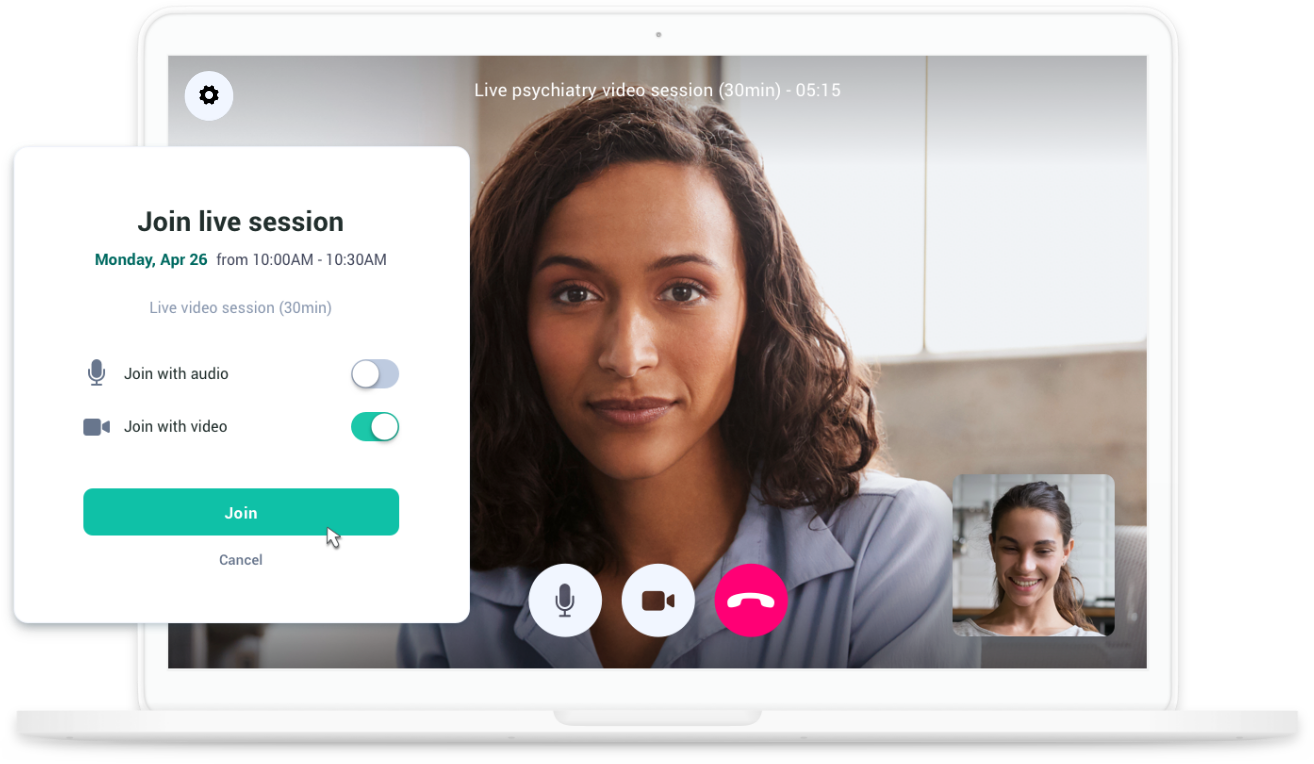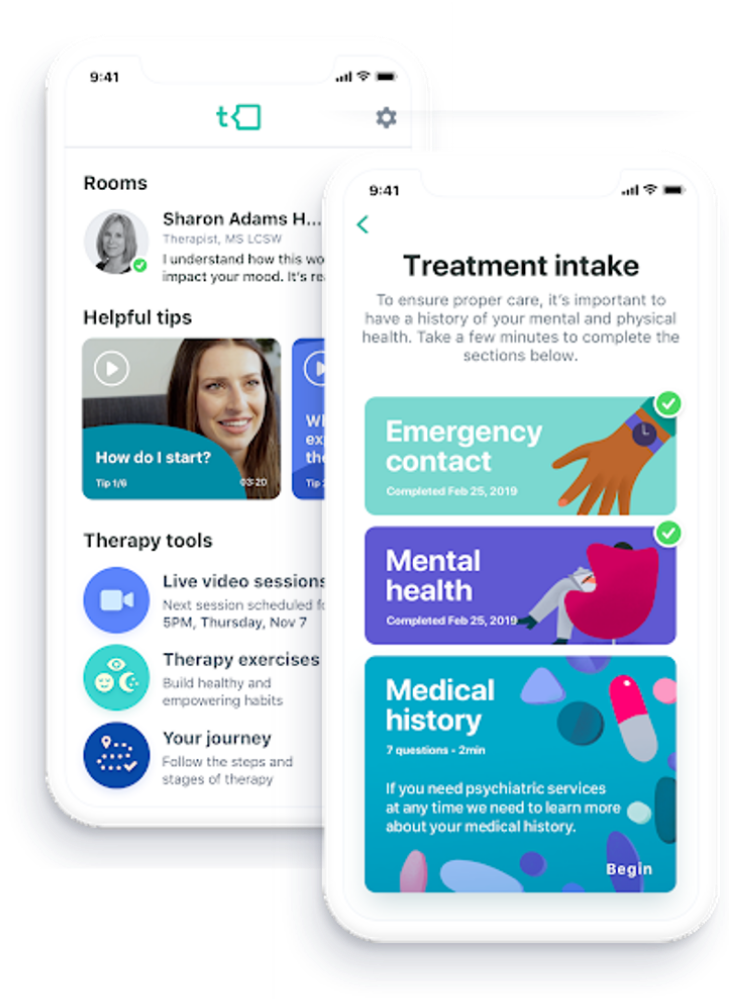Zoloft (Sertraline): online prescription management for anxiety and depression
Psychiatry appointments online, from anywhere. Our licensed psychiatric clinicians diagnose and treat anxiety and depression. Learn more about medications like Zoloft.

What is Zoloft?
Zoloft (or its generic version, sertraline) is a type of antidepressant medication known as an SSRI (selective serotonin reuptake inhibitor). It treats anxiety and depression by raising the level of serotonin, a neurotransmitter, to help improve your mood. SSRIs have been around since the early 1980s and are one of the most commonly prescribed classes of medications as they generally have fewer side effects than other antidepressants.

What is Zoloft used for?
Zoloft (and sertraline) can be prescribed to treat a number of mental health conditions, most commonly those classified as an: anxiety, depression, or panic disorder. Specific conditions Zoloft treats includes:
How Talkspace psychiatry works
Complete a brief assessment
Answer a few questions and we’ll match you with an online prescriber who meets your needs
Schedule your initial session
Once matched, schedule your live video psychiatry session.
Begin your treatment
Your online psychiatry prescriber will personalize your treatment, which may include medication and follow-ups.

Connect with a licensed prescriber
Get specialized psychiatric treatment from a licensed prescriber — all from the comfort of your home.


FREQUENTLY ASKED QUESTIONS
With Talkspace Psychiatry, the first step toward getting help is to complete a brief assessment. Once you’re matched with a psychiatric clinician, you’ll have a live video session where you’ll share how you’ve been feeling. From there, they’ll prescribe a treatment plan. If that includes a prescription medication (such as Zoloft), you can get it at your local pharmacy.
Zoloft (sertraline) is taken in different forms, dosages, and frequency, depending on your mental health condition and the treatment plan prescribed by your provider. Your psychiatrist will likely start you at a lower dose and gradually increase it as needed to treat your symptoms. Zoloft is commonly taken orally in pill form but it can be prescribed in liquid form if needed. It’s taken either once or twice a day. It’s important to take it around the same time each day, whether that is morning or night.
It’s important to take Zoloft and its generic form, sertraline, exactly as prescribed by your clinician. Side effects of Zoloft are often mild, but can include nausea, dry mouth, dizziness, headache, constipation, trouble sleeping, weight gain or loss, changes in appetite or sex drive, and more. Seek immediate medical attention if you experience thoughts of suicide, worsening depression, or aggressive behavior. You may experience side effects when you first begin taking Zoloft that lessen or dissipate once you’ve been taking it for several weeks or months.
Zoloft takes several weeks to become fully effective. At first, you may experience side effects like drowsiness, fatigue, headaches, nausea, dry mouth, trouble sleeping, or dizziness. These feelings will vary from person to person and might also depend on dosage. Once your body gets used to Zoloft (sertraline), these side effects should lessen. You may also notice your anxiety or depression getting slightly worse during the first few weeks as your body adjusts to Zoloft. Make sure to keep in close contact with your psychiatric clinician and let them know of any worsening symptoms.
Zoloft and Xanax are not the same and belong to two different drug classes. Zoloft, also known by its generic name sertraline, is a selective serotonin reuptake inhibitor (SSRI) antidepressant. Xanax, (generic name: alprazolam), is a benzodiazepine class anti-anxiety medication. Xanax and Zoloft do have some overlap in that they can both be prescribed to treat some of the same mental health conditions, including anxiety and panic disorders.
There are several different medications your psychiatrist may prescribe for anxiety or depression.
Other medications for anxiety include:
- Paxil
- Escitalopram
- Fluoxetine
Other medications for depression include:
- Citalopram
- Fluoxetine
- Paxil
- Prozac
- Bupropion
- Abilify
- Lithium
- Seroquel
- Zyprexa
- Remeron
